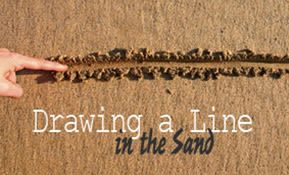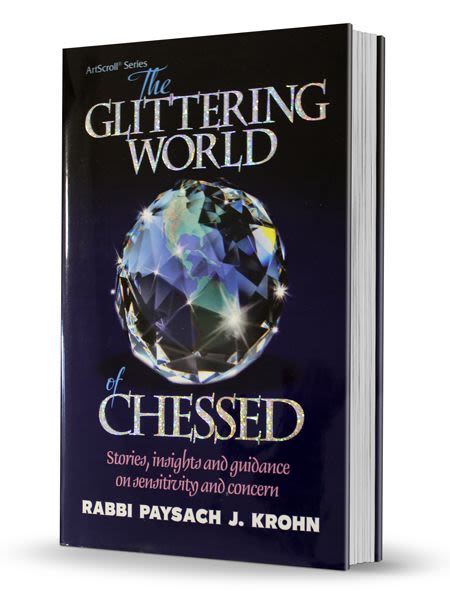
Vayeitzei: What Dr. Atkins Didn’t Tell You
So while I agree with Dr. Atkins that physical health is related to one’s ability to refrain from certain foods, I came to realize...

Many of us treat Torah concepts like excess dessert; when they cause us to push against the confines of our intellect, like a waistline against a pair of pants, we try to cut back.
Like most kids, I accepted that which is the most easy to understand. As I got older, I began looking seriously into my heritage. When I sensed, however, that Judaism and the social norms that I had grown up with were at odds, I found it easier to back away than to seek a deeper understanding. So while I agree with Dr. Atkins that physical health is related to one’s ability to refrain from certain foods, I came to realize that nothing could be more spiritually damaging than holding oneself back from a deeper examination of concepts found in the Torah.
For many, a major speed bump on the path to spiritual growth stems from their inability to part with long held beliefs when confronted with new perspectives. As a teenager, I tried to view our heritage with the same eyes that I had as a child. Naturally, I outgrew my immature analysis and, as I started high school, considered myself too ‘intellectual’ to buy into the childish ‘stories’ that I had learned in Sunday school.
Thankfully, I slowly began to realize that if such great minds as Rashi and the Rambam (Maimonaides) viewed the Torah as true, then it was possible that there was something there, which I, as a fifteen year-old, was missing. It wasn’t until later that I understood that my initial spiritual dissatisfaction stemmed from a failure to look deeper into the wellsprings of our tradition. Alone, I was not capable of finding the meaning and depth existing in Torah that could accompany my maturing intellect. As Reb Yehudah Zachter, a friend and teacher of mine once explained, the total uniqueness of Torah is that both a three year-old child and his eighty year-old grandfather can learn the exact same verse from the Torah, and each of them will find that it is perfectly suited to his life situation.
One such example of my childish fantasies turned into a profound life lesson is found in this week’s parsha, Parshat Vayeitzei. Yaakov (Jacob), on his way from Beer-Sheba to Haran, sleeps at the exact same spot where Avraham (Abraham) nearly sacrificed his son and heir, Yitzhak (Isaac). Yaakov "dreamed, and behold! a ladder set up on the ground and its top reached to heaven; and behold, angels of God were ascending and descending upon it" (Bereishit 28:12). As a child, I imagined a majestic stairway stretching from the earth to the heavens. It took many years before I realized there was far more to this image than an inspiration for one of the greatest anthems in the history of Rock and Roll music, Stairway to Heaven by Led Zepplin.
Rabbi Shimshon Rafael Hirsch explains that the of the word "sulam" "ladder" has the same root as the world "salel" "to elevate." Thus, rather than visualizing a connection between heaven and earth, Yaakov saw a ladder uniting the earth with the heavens.
Rabbi Hirsch explains that God was revealing the proper direction for all of Yaakov's goals and aspirations in life. “This goal (of connecting with God) and this striving upwards towards that goal is no fairy tale invented by Man, no erroneous theory originating on earth, but a most substantial reality established from heaven itself.”
We often make the mistake of setting our goals within the confines of physicality. We assume that our happiness depends on our physical appearance, the balance in our checkbook, or on how others view us. Although we want to be the best, we constantly meet people who are better looking, more financially secure, or more honored than ourselves. Seeing others succeed where we fall short can easily turn us into slaves, laboring to feed a starving ego that can never be satiated.
As Jews, our goal has never been rooted in this physical world because, as we learn in Kohelet, "all physical pleasure is fleeting." Rather, our task in life is to elevate our own physicality, and the physicality of this world, towards the heavens. Only when we learn to judge our growth in comparison to who we were yesterday, rather than to on the people around us, can we have the satisfaction of achievement without the bitterness of jealousy. Like a piece of machinery that is crafted to fulfill a specific function, humans were built to complete God’s creation through their performance of mitzvot. We were engineered with the proper combination of physicality and spirituality to bridge the gap between heaven and earth, and we were blessed with the Torah to steer our goals in the direction of fulfilling our highest purpose.
May we all be worthy of gorging ourselves on so much Torah that our intellectual waistline pops a button from our swelling holiness!











